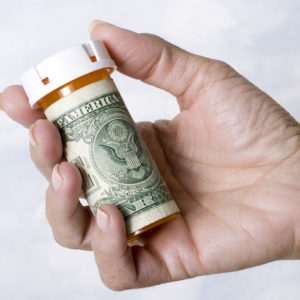President Trump has signed an executive order that aims to tackle U.S. prescription drug spending, but won’t implement it until the public, including private sector drug makers, can comment.
The order pegs the prices of certain drugs covered by Medicare to the lower prices paid in other developed countries, whose governments impose strict price controls.
The order might save the federal government some money — at least temporarily — but at great expense to patients and long-term scientific progress.
History shows that adopting government price-setting inevitably stifles medical innovation and reduces patients’ access to lifesaving drugs. This move is particularly dangerous and baffling in the middle of a pandemic.
Trump is well-intentioned. But when it comes to healthcare policy, it’s not the thought that counts. Americans can only hope the president rescinds this order, which will have harmful long-term effects.
Right now, Medicare pays 80 percent more for drugs than government health insurers in other developed countries, such as the United Kingdom and Japan. So, the administration wants to tie Medicare reimbursements to the significantly lower prices in those countries.
It’s no accident that drugs are cheaper abroad. Many foreign nations have heavily socialized healthcare systems that regulate drug prices. If pharmaceutical companies don’t accept pitifully low reimbursement rates, foreign government officials simply ban firms from selling their medicines at all.
Pegging Medicare reimbursements to those artificially suppressed prices would, in effect, impose price controls here. That might have some superficial appeal — after all, who doesn’t like the idea of cheaper drugs — but price control schemes never end well.
Government price-setting invariably restricts patients’ access to novel therapies. Right now, 96 percent of all new cancer medicines invented worldwide between 2011 and 2018 are available in America. That’s because our country has a relatively free-market drug pricing system that gives firms a chance to earn back their research and development costs.
Contrast that with the United Kingdom and Japan, where patients have access to just 71 percent and 50 percent of those cancer drugs, respectively. In these countries, drug companies stand little chance at recouping their R&D costs and earning a profit on many drugs. So, they often stay away.
Even if drug companies do enter those markets, foreign patients often wait months — or years — to receive new drugs. While Americans typically have immediate access to breakthrough cancer therapies, patients in Japan wait 23 months, on average, after a drug’s initial launch before gaining access.
Imagine if the 44 million Americans on Medicare — 15 percent of the U.S. population — had to wait an extra year and a half before they could take a new immunotherapy. That horrific consequence explains why, in this case, most congressional Republicans don’t back the president on his executive order.
The administration’s plan would also decimate medical innovation. It takes several billion dollars and over a decade to create just one new drug. The existing pricing system incentivizes companies to make those research investments — and the results have been nothing short of miraculous. Cancer death rates have plummeted more than 25 percent over the last quarter-century, mostly thanks to new treatments.
In fact, in 2019, American life expectancy increased for the first time in four years. One of the key causes was better cancer treatments.
I applaud Trump’s effort to reduce drug prices. But there are ways to do so without bringing foreign price-setting to our shores.
He already got one way right. In the same ceremony, Trump signed another executive order to target middlemen in the drug supply chain called pharmacy benefit managers. These negotiators set the prices for drugs that end up on insurers’ list of covered treatments and on the shelves of local pharmacies.
The instinct to reform the practices of PBMs was spot on. PBMs receive significant rebates from manufacturers for adding a drug to an insurer’s formulary. But they don’t disclose those rebates or use them to lower patients’ costs at the pharmacy counter.
Requiring them to pass along savings directly at the point of sale will help achieve the president’s desired reduction in drug prices without costing Americans access to lifesaving cures.
Additionally, the administration could stop the unfair trade practice of banning an American medicine unless it’s sold at an artificially low price. That would stop developed countries from benefiting off the backs of American taxpayers, who foot the bill for new drug development.
Government price-setting would snuff out future medical breakthroughs while limiting patients’ access to existing drugs. The savings aren’t worth the cost in American lives. Let’s hope the administration decides to reverse course on its new executive order.

